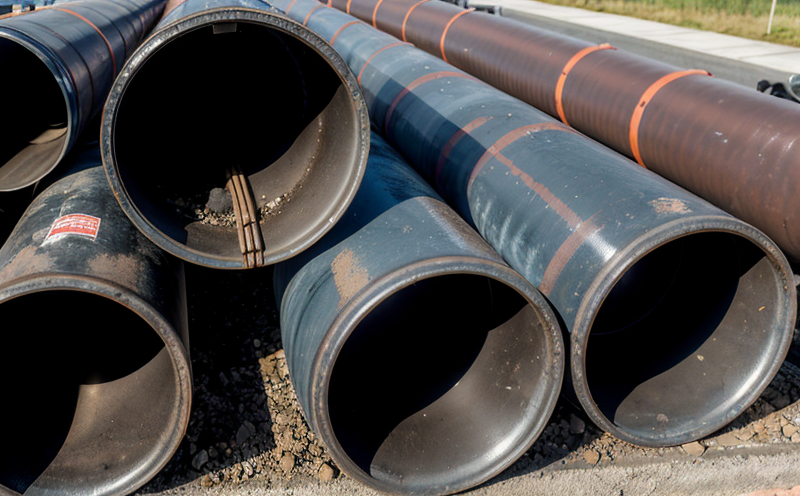DIN EN ISO 3126 Sampling and Specimen Preparation Testing of Plastic Pipes
The DIN EN ISO 3126 standard provides a comprehensive framework for the sampling, preparation, and testing of plastic pipes. This service is essential for ensuring that materials meet stringent quality standards before they are used in construction or industrial applications.
Sampling from a batch of plastic pipes involves selecting a representative sample size to ensure the accuracy and reliability of subsequent tests. The standard specifies detailed procedures for determining the number and location of samples based on the total quantity of products produced.
Specimen preparation is critical as it ensures that the test specimens accurately reflect the properties of the entire batch. This involves cutting, shaping, or otherwise preparing the pipes to a specified geometry. The standard provides exact dimensions and tolerances for these preparations to ensure consistency across different laboratories.
The testing process itself can involve a variety of physical and mechanical tests depending on the specific requirements of the application. For plastic pipes, this might include tensile strength, impact resistance, flexibility, and chemical resistance tests. Each test has its own set of parameters that must be carefully controlled to avoid any variability in results.
Accurate specimen preparation is crucial for these tests as it ensures that the properties measured are representative of the material's true performance. Any deviation from the specified dimensions can lead to misleading results, which could impact the integrity and safety of the final product.
The use of advanced instrumentation such as universal testing machines (UTMs) helps in obtaining precise measurements of mechanical properties. These instruments provide consistent and repeatable data, which is essential for compliance with international standards like DIN EN ISO 3126.
Once the specimens are prepared and tested, the results must be reported according to the standard's guidelines. This includes detailed descriptions of the testing methods used, the parameters measured, and the final results. The report should also include any deviations from the standard procedures that may have occurred during testing.
- Customer Impact: Ensures product quality compliance with international standards.
- Safety: Reduces risks associated with non-compliant materials in construction and industrial applications.
- R&D Efficiency: Provides reliable data for ongoing improvements in material properties.
Applied Standards
The DIN EN ISO 3126 standard is widely recognized and used across various sectors, including construction, infrastructure, and industrial applications. This standard ensures that plastic pipes undergo rigorous testing to meet the highest quality standards.
The application of this standard guarantees that all samples are taken from a representative batch of products, ensuring consistency in material properties. The specimen preparation process is standardized to remove any variability, thus providing reliable data for further analysis and decision-making processes.
By adhering to the procedures outlined in DIN EN ISO 3126, manufacturers can ensure that their products are suitable for a wide range of applications, from residential plumbing to large-scale industrial projects. This standard also helps in maintaining a high level of safety and reliability, which is crucial in any industry dealing with infrastructure or construction.
Using this standard ensures that the testing process is transparent and reproducible, allowing for consistent results across different laboratories. This is particularly important when comparing test results from various sources to ensure consistency and accuracy.
Industry Applications
The DIN EN ISO 3126 standard finds extensive use in the construction industry, where plastic pipes are used for water distribution systems. The reliability of these pipes is crucial to ensure safe and efficient water flow.
In industrial applications, this standard ensures that piping materials meet the necessary requirements for chemical resistance and durability. This is particularly important in industries dealing with corrosive chemicals or high-pressure fluids.
The use of DIN EN ISO 3126 also extends to residential plumbing systems where reliability and longevity are paramount. By ensuring that plastic pipes undergo rigorous testing, we can guarantee the safety and efficiency of water distribution networks.
Furthermore, this standard is crucial in the automotive industry for ensuring the durability and performance of fuel lines and other components. The stringent testing procedures help identify any potential issues early on, preventing costly failures down the line.





